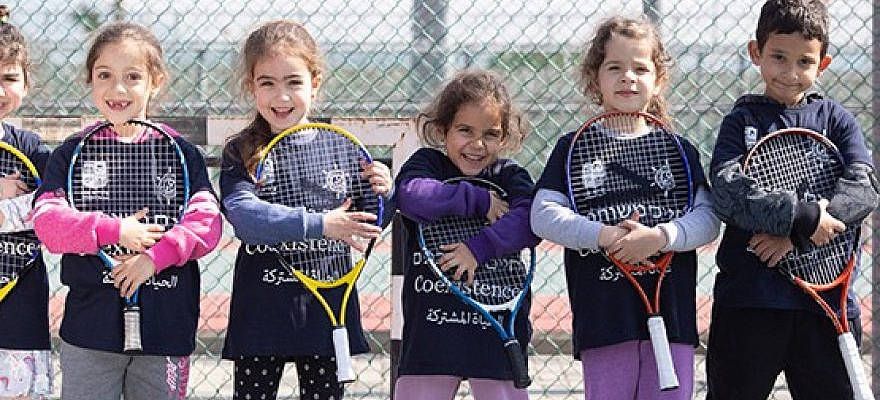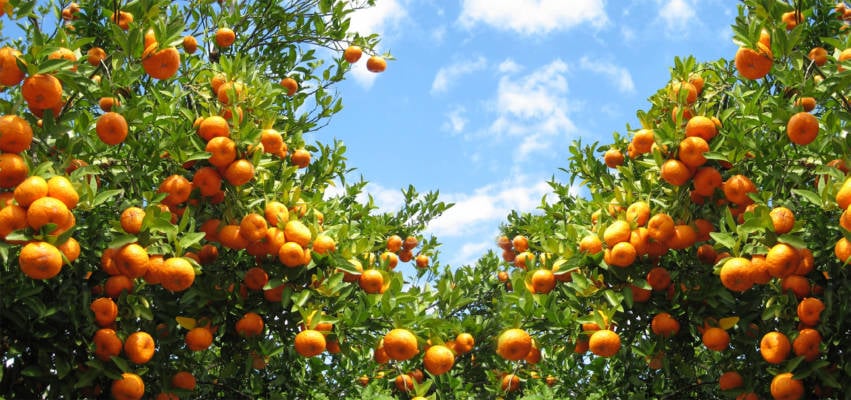The game introduces Jewish Israeli tennis players to Arab Israeli and Bahraini colleagues.
By Howard Blas, JNS.org
The Abraham Accords have made a major impact on international relations in the Middle East. They are also proving an ace for Israeli tennis.
Last month, young players and coaches from the Israel Tennis & Education Centers flew to Bahrain—the nonprofit’s second trip to the island kingdom, with which Israel normalized relations in Sept. 2020.
The Abraham Accords impacted the centers (ITEC) both domestically and abroad. First, ITEC decided after the accords debuted that its vision ought to include all Israeli kids. That included Arabs in Israel, who also ought to have “the chance to be winners in life through tennis,” Erez Vider, the group’s CEO, told JNS.
ITEC enlisted Alam Ibrahem, a resident of the Druze village Sajur in northern Israel, as Arab society coordinator to launch tennis programs in Arab communities.
At first, Ibrahem was nervous about teaching tennis, but Vider assured him that other ITEC staff, including coach Ronen Morali, would handle the tennis. Ibaham’s job was to teach the ITEC leadership and staff about Arab society.
“It is win-win,” Vider told Ibrahem. “Ronen knows how to teach tennis and you know the Arab mentality.”
Working with Israeli-Arab communities builds upon ITEC’s nearly five decades of work trying to strengthen Israeli society and foster piece through the sport. The nonprofit’s approach blends tennis playing, education, mentorship and support services for more than 7,000 children each week.
The nonprofit’s programs currently reach Arab, Bedouin, Christian, Druze and Jewish kids in Arad, Haifa, Jaffa, Jerusalem, Kiryat Shmona and Tiberias. Its Abraham’s Bridge empowers the next generation of Arabs to lead in their communities.
In a period of violence and unrest in May 2021, ITEC found its bonds were deep enough to host partners from Tayibe, one of Israel’s largest Arab cities, in its Ramat Hasharon headquarters for a day of cross-cultural discussion.
Again in Ramat Hasharon, ITEC leaders and colleagues from the Bedouin city Rahat convened in June 2021 for a partnership forum.
“The goal of Abraham’s Bridge is to help build a stronger society in Israel. At the core of that strength is human connection, which starts with our children–the next generation of leadership,” Vider told JNS. “We hope that providing children with opportunities to collaborate in a diverse setting will help nurture and celebrate new bonds that will lead to a better future for all.”
After doing some research—and with a bit of luck—Ibrahem, who had his sights set overseas, secured the phone number of Khalid Yusuf Ahmed Aljalahma, Bahrain’s ambassador in Tel Aviv. Ibrahem introduced himself and asked for a meeting.
“He visited my house with his family and children, and that’s how the relationship started—on a family level and not only in the field of tennis,” Ibrahem told JNS.
Last July, the ambassador visited ITEC headquarters. “From the first moment we met, there was an indescribable, strong click,” Ibrahem said.
“He came to Ramat Hasharon and saw Arabs from Tayibe with the Israeli flag, and Israeli kids with the Bahraini flag,” Vider said. “We are ambassadors of peace. He was emotional and impressed.”
“There is no limit to the fields in which Israel and Bahrain can build common
bridges, on which to walk together,” Aljalahma said.
The kingdom’s ambassador connected Ibrahem with the chairman of the Bahrain Tennis Association, and three months later, last October, Morali, the coach, joined an ITEC delegation to Bahrain. The group met the Bahrain Tennis Association chairman.
“They asked me to come for one week to train them for a Davis Cup event taking place in November,” Morali told JNS. “It was a very intense week, and a very productive week as well.” (The International Tennis Federation’s Davis Cup is a major team event; an Israeli team pulled off a come-from-behind victory against Latvia this month in Riga.).
The Israeli-Bahraini tennis bond has continued to yield fruitful volleys that score points.
Israeli coaches and players traveled to Bahrain last month to train with nine
local coaches, native-born Bahraini players and tennis-playing immigrants to Bahrain from the Philippines, Romania, Tunisia and Yemen.
Ido Samimiyan, 17, remains in touch with some of the new Bahraini friends he made on the trip and is excited some may visit him in Israel soon.
“They were good players and nice kids. We really bonded,” he told JNS. “We played together, ate together and played Davis Cup-style tennis.” (They spoke in English, but not about politics. Samiyan was proud of winning “by a lot,” and in awe that his new friends lived in a kingdom.)
Vider hopes ITEC will be able to offer scholarships to two Bahrani players to train in Israel.
“Sport is different from politics. You bring kids on a court, and they don’t care about color or religion,” he said. “It is amazing how fast they forget who they are playing with.”
MAKE THE LAND OF ISRAEL EVEN MORE BEAUTIFUL!
PLANT YOUR VERY OWN FRUIT TREES IN ISRAEL!
Farmers near the Gaza border lost family, friends and workers. Spring is here, and they desperately need help to replant the farms. Join us in blessing the People and Land of Israel.
“I will ordain My blessing for you…” (Leviticus 25:4)



